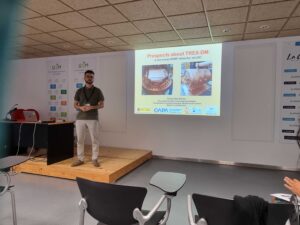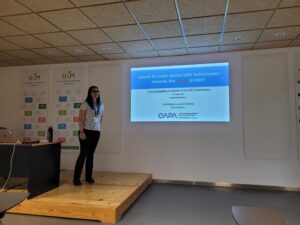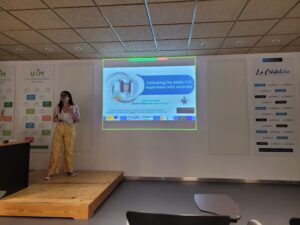Call for research position at the Nuclear and Astroparticle Physics Group – Centro de Astropartículas y Física de Altas Energías (CAPA)- Universidad de Zaragoza
1 postdoc position
We are looking excellent and motivated candidates with experimental particle physics background to join the IAXO-UZ group.
The host group at the University of Zaragoza has a leading role in the International Axion Observatory (IAXO) experiment, whose primary aim is the detection of axions emitted by the Sun.
The near-term goal of the collaboration is the construction and operation of BabyIAXO, an intermediate stage to serve as prototype of the final IAXO systems, but already with a relevant physics program in itself.
The five years duration of the project should encompass the construction, commissioning and first physics results of BabyIAXO.
The positions here offered are intended to reinforce the activities of the Zaragoza group for the preparation of the BabyIAXO experiment, which are focused in the development, preparation and characterization of a new low-background Micromegas-based x-ray detector for the focal point of BabyIAXO.
Interested candidates should send their CV, a letter of motivation to:
iaxorecruitment@unizar.es.
In addition, they should arrange for two letters of recommendation to be send to the same address.
More details on the research performed in our group can be found here:
https://gifna.unizar.es/iaxo/
https://lnkd.in/ezAU5jvx
https://gifna.unizar.es/trex/
Please contact Igor.Irastorza@cern.ch or luzon@unizar.es for any additional information.
Call




